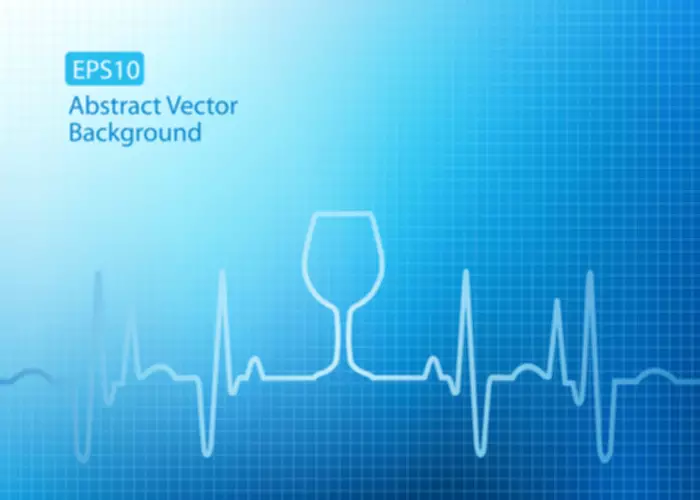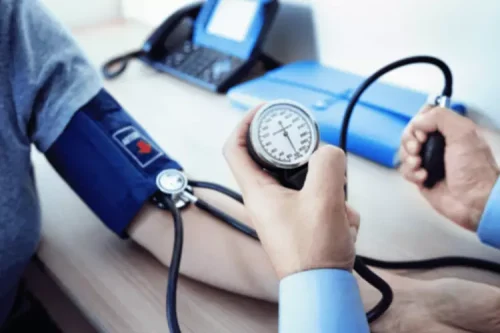
You typically cycle through these stages several times during the night, spending more time in NREM sleep in the first half and more time in REM sleep in the second half. All in all, drinking could reduce the quality of sleep you get each night, even if it seems to help you fall asleep faster. This can leave you feeling like you have insomnia after drinking alcohol—and it’s why having a nightcap before bed might not be such a good idea after all.
Night Eating Syndrome: Symptoms, Causes, and Treatments
REM sleep, which gets shortchanged in the first half of the night under the influence of alcohol, is important for mental restoration, including memory and emotional processing. While this may work for a short time, typically, more alcohol is needed to accomplish this over time. This practice can mask an underlying sleep disorder such as obstructive sleep apnea which may be causing the insomnia in the first place.
What Are the Symptoms of Pain and High Blood Pressure?
More severe cases of chronic insomnia may require different treatment strategies. Different forms of therapy, mindfulness, meditation, or hypnotherapy, can address insomnia symptoms. Lifestyle changes such as avoiding alcohol hours before https://ecosoberhouse.com/ sleep may be sufficient for treating mild, short-term insomnia. A 2019 study showed that individuals who sleep for under 6 hours each night have a 20% higher chance of heart attack than individuals who sleep between 6 and 9 hours.
Disrupted sleep cycle
Feige et al. (2007) reported elevated beta activity in REM and gamma activity instage 2 NREM sleep, but only in data from the adaptation nights, with no differences forsubsequent placebo nights from their drug study. (2002) reported a trend for elevated beta activity in alcoholics across theentire night at baseline that became a significant difference during a recovery nightfollowing a night of partial sleep deprivation. (2009b) did not see any differences between alcoholics and controls in highfrequency EEG activity during sleep.

It’s a free and accessible strategy that you can do at any time of day, including before bed. “Studies show that when people meditate or do breathwork before bed, their sleep is significantly deeper—deeper being a code word for sleep that’s less likely to be fragmented with awakenings,” says Dr. Winter. Because we tend to wake up during lighter stages of sleep, increasing the depth of your sleep can help you stay asleep. Physical activity—be it a walk around the neighborhood, a sweaty bike ride, or a muscle-burning barre class—is connected to reduced stress and more positive emotions, according to a small May 2019 study in the British Journal of Health Psychology. This de-stressing through exercise can help you feel more relaxed before bed, which may help you fall asleep, according to Dr. Winter. Just try to stick with morning or afternoon sessions, as working out too close to bedtime can actually interfere with sleep.
- “Studies show that when people meditate or do breathwork before bed, their sleep is significantly deeper—deeper being a code word for sleep that’s less likely to be fragmented with awakenings,” says Dr. Winter.
- The circadian disruption that can result from alcohol consumption contributes to leaky gut syndrome, according to research.
- During sleep, a person’s heart rate should slow and drop to below 60 beats per minute.
- If you’re turning to alcohol to help you sleep, you may be making the quality of your sleep worse.
- If you’ve had alcohol, you should refrain from using medications that can induce sleepiness or aid with sleep, such as Ambien, Benadryl, Tylenol PM and even melatonin.
- Lindsay Modglin is a nurse and professional writer who regularly writes about complex medical topics, as well as travel and the great outdoors.
- And we quickly build a tolerance for the sedative effects of alcohol, which means you may need to drink more to have the same initial sleep-inducing effects.
These results were similar for men and women, and alcohol consumption affected sedentary and active people alike. Drinking to fall asleep regularly can build up a tolerance to alcohol, gradually lessening booze’s ability to help you drift off, according to the National Sleep Foundation. Besides just waking you up a lot, alcohol can disrupt your normal sleep patterns enough to create some longer-term issues you may need to address.

3. Do complex phenotypes involving insomnia and circadian rhythm abnormalities co-exist?
“If you have pain that causes arousals from sleep, you may wake up more fully during the night,” says Dr. Ruiz-Rodriguez. Indeed, people with chronic pain struggle to fall asleep and wake up more often and for longer throughout the night, according to a December 2018 review in Sleep Medicine. Statistics show that 5.3 percent of all people 12 and older in the U.S. have an alcohol use disorder.12 And many others might deal with problematic drinking, but fall into the gray area. All this is to say that “just quitting” isn’t always easy, even when alcohol use harms your sleep and well-being. Having a nightcap to top off your day can seem helpful—at least at first—because alcohol has a way of making you feel calm, drowsy, and at ease. But its effects can backfire as your body moves through its later sleep stages, making you feel tired and sleep-deprived in the long run.

How Alcohol Affects Sleep & Exercise
Among 1,920 community dwelling men and women, those with persistent alcohol dependence had higher odds of insomnia that those without alcohol dependence over a fifteen year follow-up20. Whilst we did not measure alcohol dependence, we did find such an association between hazardous drinking and disturbed sleep in our data. In a recent cross-sectional population study of 187,950 adults in the United States short alcohol and sleep sleep prevalence was higher among adults who consumed any alcohol compared with those who never consume alcohol18. Our findings contrast with this study in that we did not find strong association between drinking and sleep duration. Jackson et al. note that the prevalence of short sleep across alcohol consumption patterns was more variable among whites, and the majority of Whitehall II participants are white.

An older study concluded that alcohol might reduce sleep in the first half of sleep and increase disruption in the second half. The substance causes sleepiness by increasing the functioning of the gamma-aminobutyric acid (GABA) neurotransmitter. Studies have found conflicting information about how alcohol affects REM sleep. Alcohol appears to consistently delay the first REM sleep episode, and higher doses of alcohol appear to reduce the total amount of REM sleep. Suppressing REM sleep can have detrimental consequences for memory consolidation and other cognitive processes.


